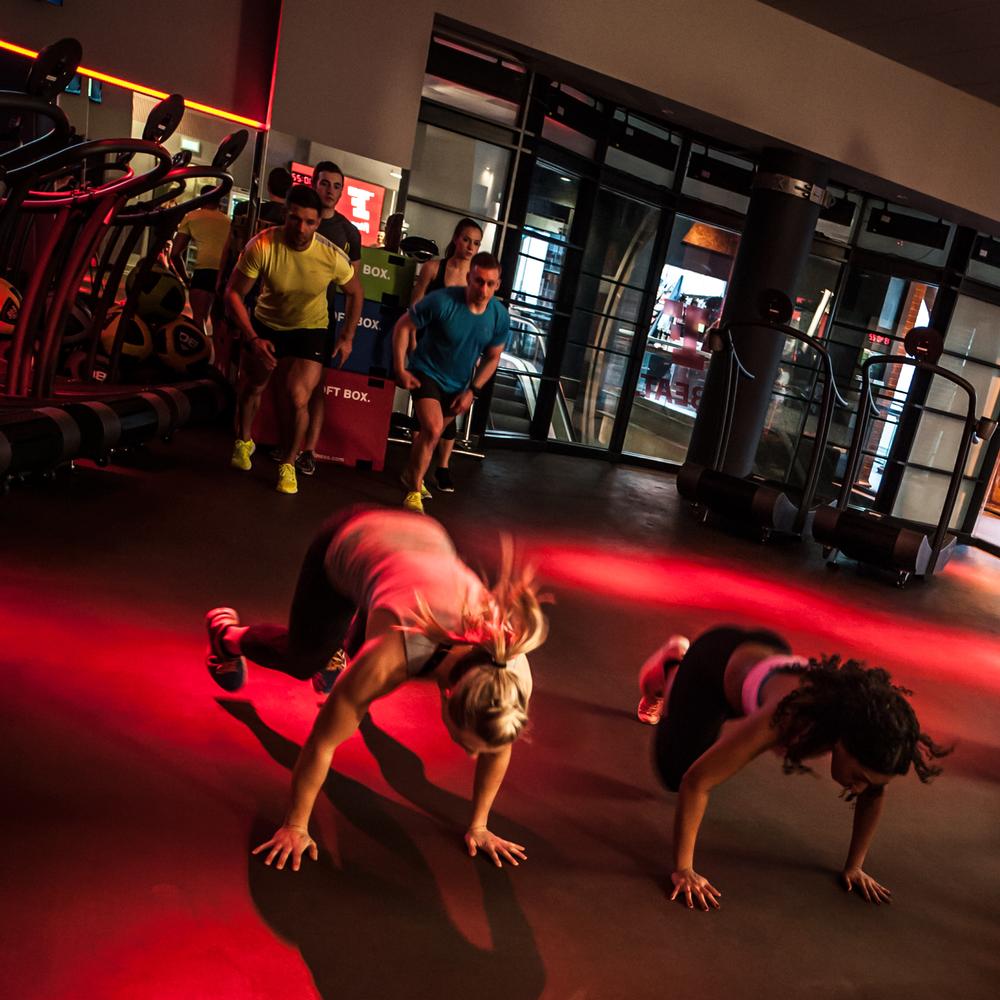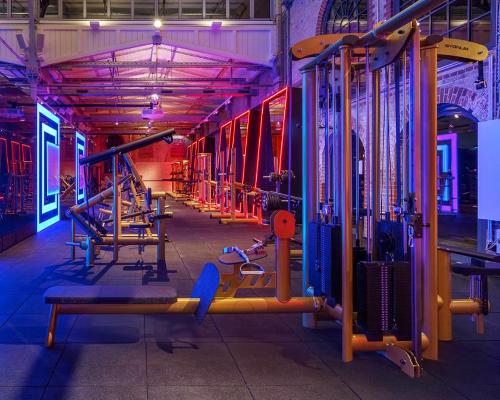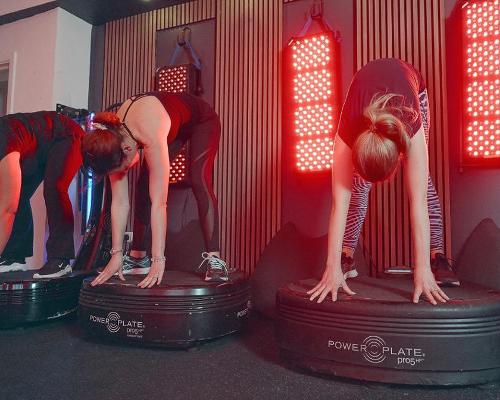features
Opportunities & threats
Which trends and sectors will drive growth of the health and fitness market in 2015?

The UK health and fitness club industry survived much of the economic downturn relatively unscathed, but the past two years have seen tougher conditions as consumers have had to cut their expenditure further in the wake of a prolonged period of real terms decline in living standards.
The structure of the industry has changed significantly during this period, with the emergence of budget clubs hitting the mid-market hard. However, the overall value of the market stayed unchanged for the second successive year – £2,665m in 2013 – with forecasts suggesting the market will grow to a value of £2,823m by 2018 (up 5.9 per cent over five years).
Mega-club vs microgym
The future of the mega-club is a key issue. Over the past three years, full-service clubs with wet and dry facilities have grown in number by only 5 per cent, compared to 9 per cent for larger dry clubs and 30 per cent for smaller gyms/fitness suites – a category that includes many budget clubs and, more recently, the micro gyms.
With a growing consumer expectation of personalised, customised products, combined with a lack of availability of suitable sites for the large club formats, Mintel believes operators will have to start looking at ‘infilling’ with smaller clubs in the same way that the major supermarket chains have switched to building smaller convenience stores serving local neighbourhoods.
This has already been recognised by David Lloyd, with its DL Studios sites in high street locations, and Fitness First, which has begun to test out smaller, specialist formats – such as heart rate training club BEAT – alongside its full-service clubs in London. The problem for the larger operators, however, is that many of these types of sites have already been taken by the burgeoning budget club sector.
Mintel’s research shows the biggest barrier to being healthier is lack of motivation, with over four in 10 British adults (46 per cent) citing this. This need to be motivated is currently working against some of the mega-clubs, which can be quite impersonal, with members largely left to exercise alone and motivate themselves.
By contrast, one of the key features of the microgym is that it offers instructor-led group activities, often in smaller groups – a more personal service, with appointments made for particular classes helping to further boost motivation.
Wearable technology
Lack of motivation also presents opportunities for technology that nudges people to make healthy habits more routine. Wearable technology streamlines the process of tracking daily activity and has the potential to revolutionise the way the health and fitness industries operate.
As wearable technology is still in its infancy, adoption is very low: only 5 per cent of consumers surveyed by Mintel reported using a wearable device or a smartwatch as at April 2014. However, interest in using such devices is considerably higher, and this interest is likely to be turned into uptake as wearable technology starts to go mainstream, with trusted retailers and manufacturers moving into the market and price points dropping. Indeed, Mintel’s 2015 Trends highlight ‘Get smart’ as one of the four key trends for the coming year.
Company-provided wearable technology could be the next step and could prove a huge asset to businesses, helping to create a healthier and happier workforce and with it lowering insurance rates, increasing productivity and reducing sick leave.
Around a third (34 per cent) of adults in full-time employment felt they had been more stressed in April 2014 compared with the same time the year before; there’s a clear need for companies to assess the health of their workers and devise action plans to reduce stress levels and raise regularity of exercise.
Wearable devices could track employee activity levels, as well as encouraging them to get up and move around more throughout the day – particularly relevant for office workers with sedentary daily routines. Other applications could increase worker safety, with built-in chemical or smoke sensors, or alerts about changing environmental conditions for those working outdoors.
The budget clubs
Another key issue in the health and fitness market is the future of the budget club sector, with lack of money (33 per cent) the second most quoted barrier to being healthy. Between 2011 and 2014, the number of budget clubs has grown by 203 per cent, from 73 to 221. However, the annual rate of growth in budget club site numbers has decreased, from 95 per cent in 2012, to 29 per cent in 2013, and 21 per cent in 2014.
And conditions for the budget sector may become tougher in the next few years: the UK is in the early stages of what looks likely to be a strong economic recovery, consumer confidence has bounced back and unemployment is falling much more rapidly than anticipated. The combined effect of these factors means that consumers may be more prepared to look at increasing their monthly outgoings again, which could include trading up their gym membership.
Additionally, there’s some evidence that saturation of budget options (i.e. budget clubs and local authority leisure centres) is being approached in some areas; competition is likely to intensify, which will not going to be good for margins – particularly with the likes of Sports Direct coming into the market with an introductory price point of £5 a month.
Driving revenue
There’s also the issue of how clubs can increase revenues from existing members and non-members, with the best opportunities among existing members likely to be found in extending services beyond the club environment. For example, a member may not be able to physically visit a club as often as they want to, but might be willing to pay extra to follow classes at home using a live stream, or by downloading classes from an online library. They may also welcome the opportunity to rent fitness monitoring equipment that will measure their activity levels throughout their day, not just when they are in the health club.
Mintel’s research also indicates some potential for offering dietary advice via email or text, and that current users would be prepared to pay a modest amount (around £8.50 a month) to receive this.
Meanwhile, among non-members, well over a third (37 per cent) say they prefer to pay per visit. Such pay as you go options represent an excellent way for clubs to encourage trial among prospective members – but clubs should perhaps put a limit on how long people can take advantage of this facility, or price it so a monthly membership is cheaper if they visit more than twice a week.
A further 24 per cent of non-users who are potential club users say they would prefer to belong to a club where they pay only for the facilities they choose to use, suggesting that more flexible memberships are another strategy clubs could pursue to maximise their appeal to potential users. With modern access technology – keys, wristbands or cards – this should be relatively easy to deliver and police.
And for the more apathetic consumers, the most obvious route is trial, perhaps offering a reward in return for meeting a challenge (e.g. cycle or run on a machine for two minutes) or bringing exercise to places where people go in large numbers, such as a shopping centre or high street.
Potentially there’s a whole new audience who may never have any desire to enter a physical club, but who would welcome the opportunity to take part in outdoor or home-based structured fitness activity, whether an outdoor run, a class in a park or a workout streamed to their home.
Britain lacks confidence
Today in Britain, 36 per cent of consumers have not played or participated in sport in the past 12 months, rising to over half (61 per cent) of those over 65 years and 52 per cent of people aged 55–64.
Mintel’s latest Sports Participation report highlights lack of physical confidence as a key barrier to fitness, with more than one in five Brits (22 per cent) saying they don’t feel fit enough to play sport or exercise with other people.
Despite this, over a third (38 per cent) say they would like to be more active to improve their health, with this figure rising to over half (54 per cent) of those who say they don’t feel fit enough to exercise with other people.
FIND OUT MORE
Mintel’s latest Health and Fitness Clubs UK report was published in June 2014, its Healthy Lifestyles report in July 2014, and Sports Participation in September 2014.
Website: www.mintel.com
Twitter: www.twitter.com/mintelnews
LinkedIn: http://www.linkedin.com/groups?mostPopular=&gid=1888954





































































